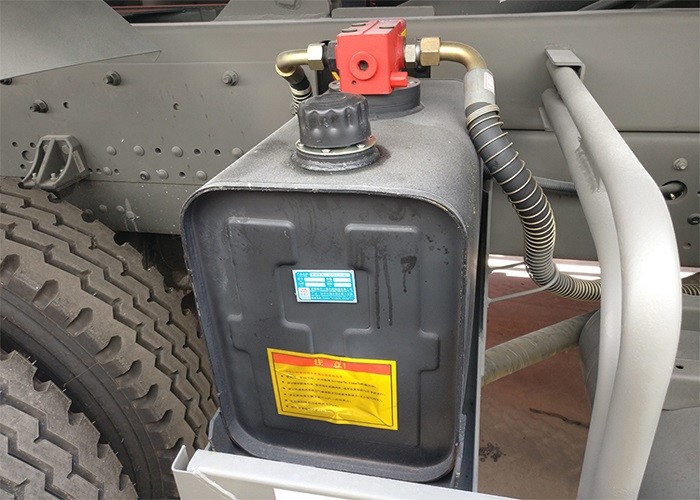In the realm of energy sources, LPG (Liquefied Petroleum Gas) and NG (Natural Gas) often come up in discussions about residential heating, cooking, and even automotive fueling options. Both fuels are popular for their efficiency and environmental benefits, yet they have distinct characteristics that set them apart. This article delves into the differences between LPG and NG, their applications, benefits, disadvantages, and practical tips for consumers.
Table of Contents
- What are LPG and NG?
- Key Differences Between LPG and NG
- Efficiency and Energy Content
- Applications of LPG and NG
- Cost Considerations
- Environmental Impact
- Safety Considerations
- Choosing the Right Fuel for Your Needs
- Practical Tips for LPG and NG Use
- FAQ
What are LPG and NG?
LPG (Liquefied Petroleum Gas) and NG (Natural Gas) are both hydrocarbons primarily used for heating, cooking, and fueling vehicles. Although they share similarities, they are derived from different sources and have distinctive properties.
The Basics of LPG
LPG is a byproduct of natural gas processing and crude oil refining. It comprises primarily propane and butane, which can be easily liquefied under moderate pressure. LPG is stored in pressurized tanks, making it convenient for transport and usage in areas lacking natural gas pipelines.
The Basics of NG
Natural Gas is primarily composed of methane (CH4) and is found in underground reservoirs. It is delivered through pipelines and is commonly used in residential, commercial, and industrial applications. Unlike LPG, natural gas remains in gaseous form under standard conditions.
Key Differences Between LPG and NG
| Feature | LPG | NG |
|---|---|---|
| Composition | Primarily propane and butane | Primarily methane |
| State at Room Temperature | Liquefied under pressure | Gaseous |
| Energy Content | Higher calorific value | Lower calorific value |
| Storage and Transport | Stored in tanks | Delivered via pipelines |
| Delivery Method | Can be delivered in bottles or tanks | Delivered through a network |
| Odor | Odorized for safety | Odorized (mercaptan) for safety |
Efficiency and Energy Content
Energy Density Comparison
One of the significant differences between LPG and NG is their energy density. LPG has a higher calorific value, meaning more energy is contained in a given volume of LPG compared to NG. For consumers, this translates to more heating power or energy generation from LPG.
Usage Efficiency
When it comes to efficiency, LPG can be more effective for cooking due to its intense heat output. However, natural gas is more commonly used in central heating systems and large-scale industrial applications due to its lower price and ease of availability.
Applications of LPG and NG
Residential Use
Both LPG and NG are used for various household applications. LPG is popular in rural areas without natural gas access and is commonly used in:
- Heating units
- Gas stoves and ovens
- Water heaters
Natural Gas is more prevalent in urban areas and is generally used for:
- Home heating
- Cooking
- Drying clothes
- Powering water heaters
Commercial and Industrial Applications
In commercial settings, both fuels find applications in heating, cooking, and fueling equipment, with NG being commonly used in restaurants and industrial processing plants due to its cost-effectiveness. LPG, however, is favored in mobile applications, such as barbecue grills or outdoor heaters.
Automotive Usage
LPG and NG are both employed as alternative fuels in vehicles. LPG is more common in cars and buses because of its higher energy content, while natural gas is increasingly being used for public transportation systems in urban settings.
Cost Considerations
Cost can greatly influence the choice between LPG and NG. Here’s a deeper look at the expenses involved:
Fuel Prices
Fuel prices fluctuate based on location, market demand, and economic factors. In general, natural gas tends to be cheaper than LPG due to its abundant supply and pipeline infrastructure.
Installation and Equipment
When switching from one type of gas to another, additional costs may arise from needing new appliances, regulators, and piping systems. Homeowners must consider these one-time installation costs versus the ongoing fuel costs.
Environmental Impact
Carbon Emissions
Both LPG and NG are considered cleaner fuels compared to coal and oil. Natural Gas burns more cleanly, producing fewer CO2 emissions. However, LPG, being derived from fossil fuels, still contributes some greenhouse gases during combustion.
Renewable Sources
Natural Gas can also be sourced from biogas, making it a more sustainable option when renewable gas is utilized. LPG is derived from non-renewable resources, limiting its long-term sustainability.
Safety Considerations
Flammability
Both LPG and NG are highly flammable, hence safety precautions are crucial. LPG is denser than air and can accumulate in low-lying areas, while natural gas, being lighter than air, disperses quickly in case of a leak.
Leak Detection
Both gases are odorized with a distinct smell (similar to rotten eggs) to aid in leak detection. Ensuring proper ventilation, regular appliance maintenance, and utilizing gas detectors can significantly reduce safety risks.
Choosing the Right Fuel for Your Needs
Factors to Consider
When deciding between LPG and NG, consider the following factors:
- Availability: Check local suppliers and infrastructure.
- Usage: Consider what you need the fuel for, whether it’s cooking, heating, or automotive fuel.
- Cost: Analyze both the short-term installation costs and ongoing operational expenses.
- Environmental Impact: Assess your responsibility toward sustainability.
Consulting Experts
Consulting with energy experts or local utility companies can provide valuable insight into what fuel suits your particular needs best.
Practical Tips for LPG and NG Use
Installation and Maintenance
For both LPG and NG systems, regular maintenance is essential. Schedule periodic inspections to ensure safe and efficient operation.
Energy Efficiency Tips
- Invest in energy-efficient appliances to maximize fuel efficiency.
- Seal any gaps around windows and doors to retain heat during winter.
- Use programmable thermostats to optimize energy usage.
Emergency Preparedness
Prepare for emergencies by having a gas leak detector and ensuring everyone in your household knows how to shut off the gas supply in case of an emergency.
FAQ
1. Is LPG or NG cheaper to use?
Generally, natural gas tends to be less expensive than LPG due to its wider availability and infrastructure.
2. Can I switch between LPG and NG?
Yes, you can switch, but you will need to invest in new appliances or modify existing ones to accommodate the different fuel types.
3. Which fuel is safer to use?
Both LPG and NG are safe when handled correctly; however, NG disperses more quickly in case of a leak, potentially making it a slightly safer option.
4. What is the odor added to natural gas?
A chemical called mercaptan is added to natural gas to give it a distinct odor for safety, allowing leaks to be easily detected.
5. Are there any environmental benefits to using natural gas?
Yes, natural gas burns more cleanly than LPG, producing fewer greenhouse gases and can be sourced from renewable biogas.
6. Can LPG be used for heating water?
Yes, LPG is commonly used in water heaters, especially in areas where natural gas is unavailable.



